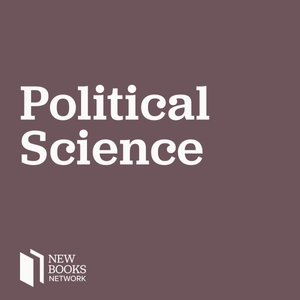
Education’s Mirror: AI, Feedback, and Screens
04/30/25 • 16 min
1 Listener
Hello listeners! In this episode of The Culture Compute Podcast, I reflect from the Du Bois Library at UMass Amherst on the evolving landscape of educational technologies—specifically how synthetic data, on-device AI, and school phone policies are reshaping learning in real-time.
We explore:
- The promise of synthetic educational data for privacy and scale.
- How students respond to AI-generated vs. instructor feedback.
- Surprising findings from a large-scale study on school phone policies and adolescent mental health.
- And a sneak peek into my new STEM music project powered by generative AI.
Whether you’re a teacher, researcher, or curious learner, this episode dives deep into the future of learning with nuance and care.
🔗 Resources & Links Mentioned:
🎵 STEM Music Videos on YouTube – Equations & Echoes
https://www.youtube.com/@equations.echoes
📘 Khalil, M., Liu, Q., & Jovanovic, J. (2025)
AI for data generation in education: Towards learning and teaching support at scale
British Journal of Educational Technology
https://doi.org/10.1111/bjet.13580
📘 Er, E., Akçapınar, G., Bayazıt, A., Noroozi, O., & Banihashem, S. K. (2024)
Assessing student perceptions and use of instructor versus AI‐generated feedback
British Journal of Educational Technology
https://doi.org/10.1111/bjet.13558
📘 Goodyear, V. A., et al. (2025)
School phone policies and their association with mental wellbeing, phone use, and social media use (SMART Schools)
The Lancet Regional Health–Europe
https://doi.org/10.1016/j.lanepe.2025.101211
Website: https://www.culturecomputepod.com/
Email: sgattupalli at umass dot edu
🎧 Subscribe for more conversations where education, culture, and technology converge.
Until next time, keep computing culture.
Hello listeners! In this episode of The Culture Compute Podcast, I reflect from the Du Bois Library at UMass Amherst on the evolving landscape of educational technologies—specifically how synthetic data, on-device AI, and school phone policies are reshaping learning in real-time.
We explore:
- The promise of synthetic educational data for privacy and scale.
- How students respond to AI-generated vs. instructor feedback.
- Surprising findings from a large-scale study on school phone policies and adolescent mental health.
- And a sneak peek into my new STEM music project powered by generative AI.
Whether you’re a teacher, researcher, or curious learner, this episode dives deep into the future of learning with nuance and care.
🔗 Resources & Links Mentioned:
🎵 STEM Music Videos on YouTube – Equations & Echoes
https://www.youtube.com/@equations.echoes
📘 Khalil, M., Liu, Q., & Jovanovic, J. (2025)
AI for data generation in education: Towards learning and teaching support at scale
British Journal of Educational Technology
https://doi.org/10.1111/bjet.13580
📘 Er, E., Akçapınar, G., Bayazıt, A., Noroozi, O., & Banihashem, S. K. (2024)
Assessing student perceptions and use of instructor versus AI‐generated feedback
British Journal of Educational Technology
https://doi.org/10.1111/bjet.13558
📘 Goodyear, V. A., et al. (2025)
School phone policies and their association with mental wellbeing, phone use, and social media use (SMART Schools)
The Lancet Regional Health–Europe
https://doi.org/10.1016/j.lanepe.2025.101211
Website: https://www.culturecomputepod.com/
Email: sgattupalli at umass dot edu
🎧 Subscribe for more conversations where education, culture, and technology converge.
Until next time, keep computing culture.
Previous Episode

Converging Perspectives: Redefining Education Through AI Literacy, Algorithmic Authorship, and Interactive Pedagogy
In this episode of the Culture Compute Podcast: Learning in the Digital Age, I, Sai Gattupalli from the Advanced Learning Technologies Lab at the University of Massachusetts Amherst, review my personal notes from three recent, peer-reviewed research papers that are reshaping our understanding of educational technology. These studies—published in the British Journal of Educational Technology, Learning, Media and Technology, and a work by Salmaan Khan—offer fresh insights into AI literacy frameworks, the evolving role of algorithmic authorship in academia, and innovative approaches to interactive digital pedagogy.
In our discussion, I explore how Chee, Ahn, and Lee’s comprehensive framework for AI literacy provides a developmental pathway that spans from basic digital skills to advanced data-driven decision-making. I reflect on my own journey in learning technology, emphasizing the importance of continuous professional development and robust institutional support.
Next, I delve into Gretzky and Dishon’s thought-provoking examination of algorithmic authorship. Their work challenges traditional notions of creativity and intellectual contribution as AI tools increasingly participate in scholarly writing. I share my personal insights on the balance between human ingenuity and machine assistance, a theme that has profound implications for the future of academic work.
Finally, I review Salmaan Khan’s study on interactive digital pedagogy, which highlights how adaptive digital platforms can transform classrooms by engaging students as active, collaborative participants. This research underscores the practical benefits of technology when thoughtfully integrated into teaching practices—a vision that resonates deeply with my own experiences in the field.
Join me as we synthesize these groundbreaking studies and discuss how their collective insights can redefine teaching and learning in our increasingly digital world.
References:
Chee, H., Ahn, S., & Lee, J. (2024). A Competency Framework for AI Literacy: Variations by Different Learner Groups and an Implied Learning Pathway. British Journal of Educational Technology. https://bera-journals.onlinelibrary.wiley.com/doi/10.1111/bjet.13556?af=R
Gretzky, M., & Dishon, G. (2025). Algorithmic-authors in academia: blurring the boundaries of human and machine knowledge production. Learning, Media and Technology. https://www.tandfonline.com/doi/full/10.1080/17439884.2025.2452196
Khan, S. (2024). From Passive Receptors to Engaged Participants: Addressing the Limits of Generative AI and Knowledge Sharing in the Digital Age. https://cuny.manifoldapp.org/read/from-passive-receptors-to-engaged-participants-addressing-the-limits-of-generative-ai-and-knowledge-sharing-in-the-digital-age/section/2b6f966a-0830-42bd-b705-3f0ddb26e6a7
For inquiries or further discussion, please email [email protected]. Visit CultureComputePod.com for more information.
If you like this episode you’ll love
Episode Comments
Generate a badge
Get a badge for your website that links back to this episode
<a href="https://goodpods.com/podcasts/the-culture-compute-podcast-547598/educations-mirror-ai-feedback-and-screens-90231477"> <img src="https://storage.googleapis.com/goodpods-images-bucket/badges/generic-badge-1.svg" alt="listen to education’s mirror: ai, feedback, and screens on goodpods" style="width: 225px" /> </a>
Copy




